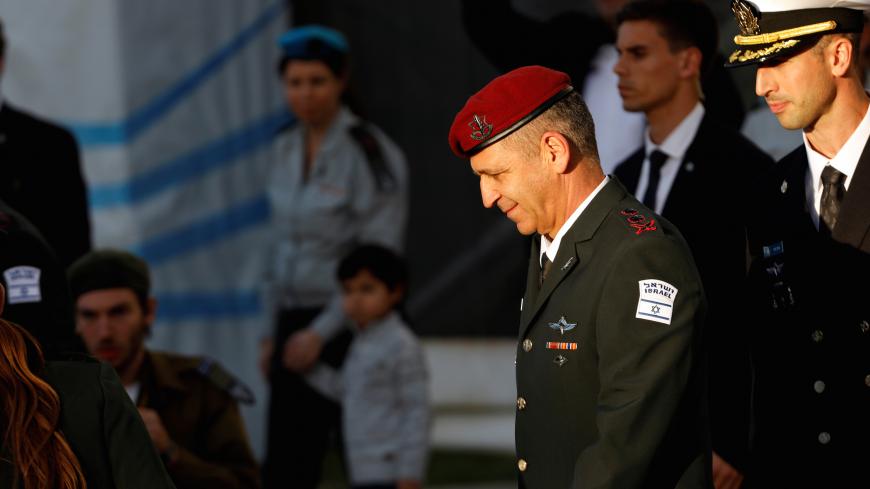This week’s changing of the guard at the top of the Israeli army has all the trappings of a royal wedding. The replacement of Gadi Eizenkot with Aviv Kochavi as chief of staff of the Israel Defense Forces (IDF) today was marked by a daylong ceremony, including a prayer visit to the Wailing Wall, lunch at the president's home and a fancy ceremony with a who’s who of the Israeli elite. The country’s TV stations all broadcast the ceremony live and extensively quoted from both generals’ speeches. The preceding weekend, seemingly every media outlet published interviews with Eizenkot (who never gave interviews while he was on duty) and plenty of trivia about Kochavi.
Why it matters: The IDF ranks at the top in poll after poll involving public trust, far ahead of any other institution. Since serving in the army is mandatory for most Israelis (except Arab citizens), nearly every family has or has had a soldier in the ranks. High-ranking officers in particular are considered to have given their best years to the country and are widely viewed as the ultimate patriots. In a divided society that despises most politicians, love for the army cuts across almost every demographic and party.



